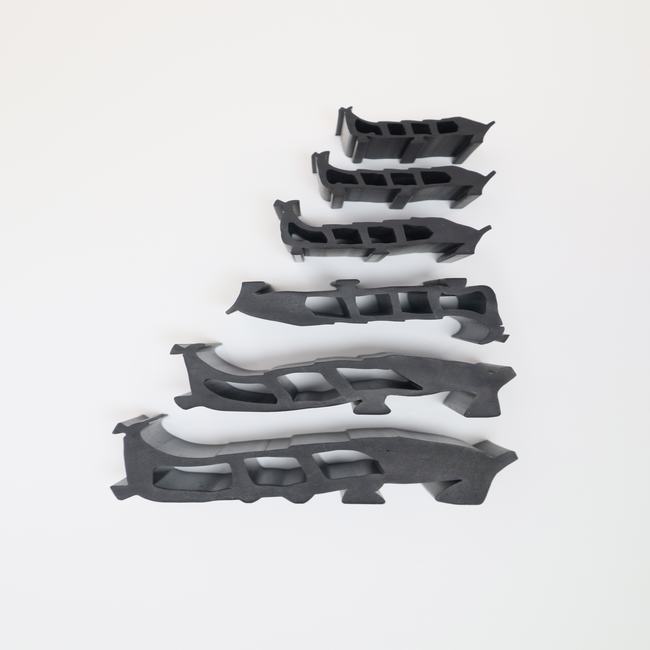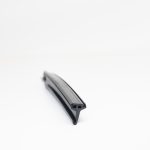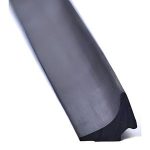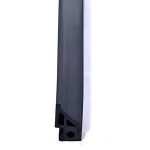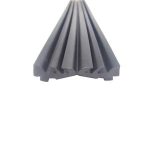Concrete Pipe Seals: Ensuring Reliability and Longevity in Underground Infrastructure
Concrete pipe seals are critical components used in the construction and maintenance of underground infrastructure systems, including stormwater drainage, sewage conveyance, culverts, and sanitary sewer systems. These seals play a pivotal role in ensuring the watertight integrity and long-term performance of concrete pipes. In this comprehensive overview, we will delve into the key features, types, materials, installation methods, applications, and benefits of concrete pipe seals.
1. Key Features of Concrete Pipe Seals:
- Watertight Integrity: The primary function of concrete pipe seals is to provide a reliable and durable watertight seal at pipe joints. This prevents leakage of sewage or stormwater into the surrounding soil and groundwater.
- Chemical Resistance: Concrete pipe seals are designed to withstand exposure to a variety of chemicals commonly found in sewage and stormwater systems, ensuring long-term durability.
- Flexibility: These seals are engineered to accommodate joint movement caused by ground settlement, temperature variations, and external forces, while maintaining their sealing capability.
- Ease of Installation: Concrete pipe seals are typically easy to install and require minimal tools, contributing to efficient construction and maintenance processes.
2. Types of Concrete Pipe Seals:
- Rubber Gaskets: These are the most common type of concrete pipe seal. They are made from elastomeric materials and fit snugly into the joint space between two concrete pipes, providing a secure and watertight seal.
- Mastic Seals: Mastic seals consist of a bituminous or thermoplastic compound that is applied to the joint surface to create a flexible, waterproof seal.
- Compression Seals: Compression seals are preformed seals that are compressed between the concrete pipe joints, ensuring a tight seal against infiltration and exfiltration.
3. Materials Used:
- Elastomeric Rubber: Natural rubber or synthetic rubber compounds, such as EPDM (Ethylene Propylene Diene Monomer) or neoprene, are commonly used due to their excellent sealing properties and durability.
- Bituminous Compounds: These are often used in mastic seals for their water-resistant and adhesive properties.
- Thermoplastic Compounds: Some seals use thermoplastic materials for their flexibility and resistance to chemicals.
4. Installation Methods:
- Push-in Seals: Rubber gaskets are pushed into the joint cavity between two concrete pipes, where they expand and create a seal.
- Integrated Seals: Some concrete pipe designs come with integrated seals that are cast directly into the pipe during manufacturing, ensuring a seamless and reliable joint.
5. Applications: Concrete pipe seals find application in various industries and infrastructure systems:
- Stormwater Drainage: They are used in stormwater drainage systems to prevent rainwater from infiltrating the ground.
- Sewage and Sanitary Systems: Concrete pipe seals are essential in sewage and sanitary sewer systems to prevent the escape of waste and contaminants.
- Culverts: Culverts, which allow water to flow under roads, railways, or embankments, rely on concrete pipe seals for proper function.
- Utility Tunnels: They are used in underground utility tunnels to ensure the integrity of utility conduits and pipes.
6. Benefits:
- Water Tightness: The primary benefit is the prevention of water infiltration and exfiltration, which preserves the structural integrity of the system and reduces the risk of contamination.
- Longevity: Concrete pipe seals contribute to the long service life of underground infrastructure, reducing the need for frequent maintenance and replacement.
- Environmental Protection: Properly sealed concrete pipes prevent the release of pollutants into the environment, protecting water sources and ecosystems.
- Cost-Efficiency: They reduce maintenance and repair costs associated with leaky pipes and infiltration problems.
In conclusion, concrete pipe seals are indispensable components in the construction and maintenance of underground infrastructure systems. Their ability to ensure watertight integrity, prevent contamination, and extend the lifespan of concrete pipes makes them vital for the reliability and sustainability of sewage, stormwater, and culvert systems. As urbanization continues to grow, the importance of effective concrete pipe seals in maintaining the integrity of underground infrastructure becomes increasingly evident.
